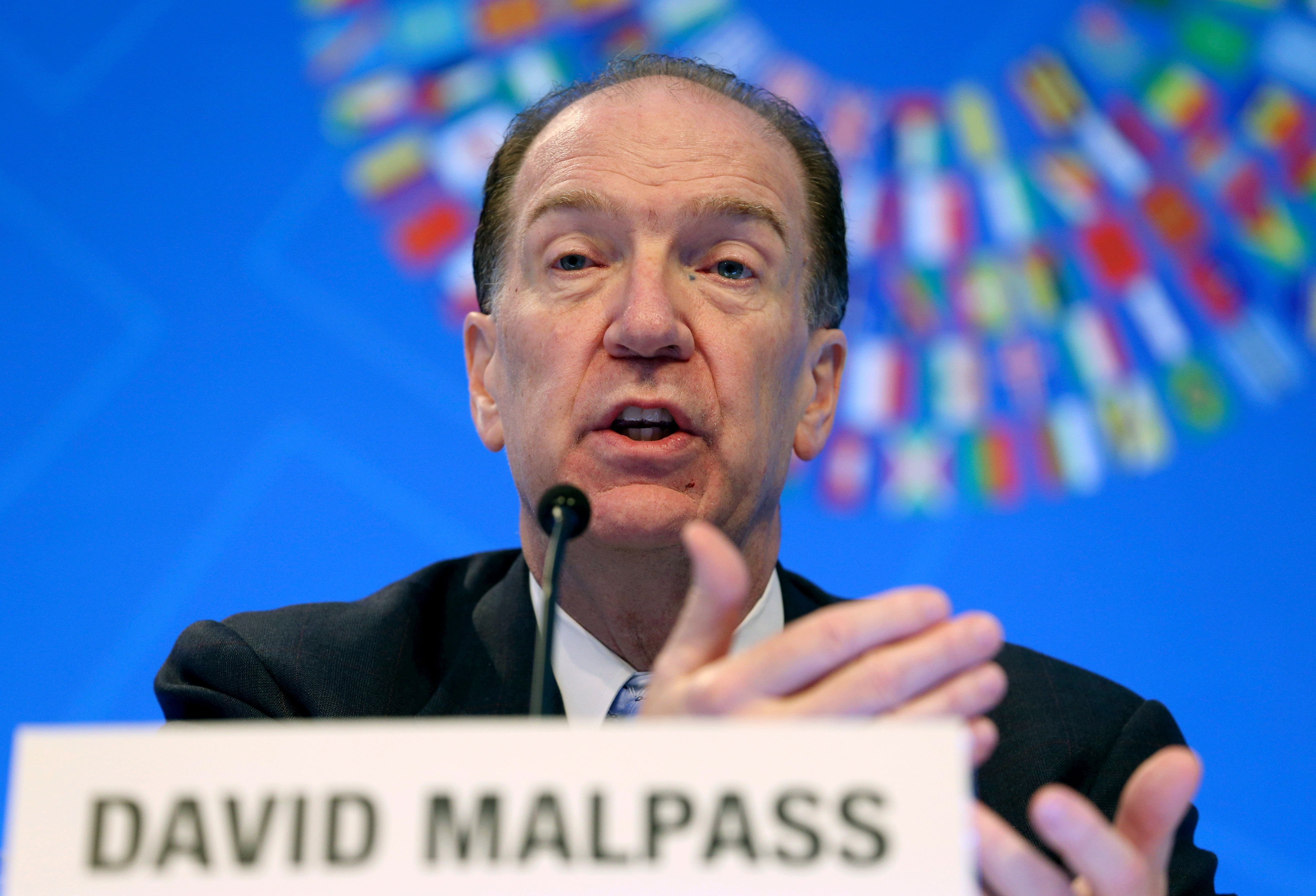World Bank sees subdued recovery in 2021 and plenty of risk
The World Bank on Tuesday forecast that the global economy will see a subdued recovery this year from a devastating pandemic but warned that the near-term outlook is highly uncertain and growth could be harmed if infections keep rising and the rollout of vaccines is delayed

Your support helps us to tell the story
From reproductive rights to climate change to Big Tech, The Independent is on the ground when the story is developing. Whether it's investigating the financials of Elon Musk's pro-Trump PAC or producing our latest documentary, 'The A Word', which shines a light on the American women fighting for reproductive rights, we know how important it is to parse out the facts from the messaging.
At such a critical moment in US history, we need reporters on the ground. Your donation allows us to keep sending journalists to speak to both sides of the story.
The Independent is trusted by Americans across the entire political spectrum. And unlike many other quality news outlets, we choose not to lock Americans out of our reporting and analysis with paywalls. We believe quality journalism should be available to everyone, paid for by those who can afford it.
Your support makes all the difference.The global economy will experience a subdued recovery this year from the devastating pandemic, the World Bank predicted Tuesday, but it warned that the near-term outlook is highly uncertain and growth could be imperiled if coronavirus infections and delays in the rollout of vaccines continue.
In its new Global Economic Outlook the World Bank forecast 4% growth this year following a 4.3% decline in 2020, the biggest plunge in global output since a contraction of 9.8% in 1945 as nations demobilized at the end of World War II.
By comparison, the global recession triggered by the Great Depression of the 1930s saw growth shrink by 4.8% on average from 1930 through 1932. The 2008 financial crisis triggered a 1.8% drop in global output in 2009.
“If history is any guide, the global economy is heading for a decade of growth disappointments unless policy makers put in place comprehensive reforms,” the bank warned, citing the global pandemic layered over economic trends already in play.
“While the global economy appears to have entered a subdued recovery, policymakers face formidable challenges in public health, debt management, budget policies, central banking and structural reforms,” said World Bank President David Malpass.
The bank said global growth will be aided by a recovery this year to GDP growth of 3.5% in the United States and an even bigger 7.9% rebound in China, the world’s two biggest economies. For 2020, the World Bank expects GDP in the United States to fall by 4.3% while it predicted a modest 2% increase in China.
Because of the uncertainty caused by the current resurgence in virus cases and initial problems in distributing vaccines, the World Bank cautioned that its forecast is highly uncertain.
Under a scenario where virus cases continue to rise and the rollout of the vaccine does not accelerate, global growth could be reduced to a meager 1.6% this year.
The new report boosted global growth for 2020 by 0.9 percentage-points from its June forecast, reflecting in part a better-than-expected performance in China and the United States. But the forecast trimmed the outlook for 2021 by 0.2 percentage points.
For the United States, the decline for 2020 was revised up by 2.5 percentage points to a smaller decline of 3.6%, and the 3.5% rebound for 2021 was lowered by half a percentage point.
To combat the sharp downturn, the World Bank has made $160 billion available to help more than 100 countries protect the poor, support businesses and bolster the recovery.
Malpass, in a briefing for reporters, said the World Bank was making available $12 billion to provide 1 billion COVID-19 vaccinations in poor countries.
“People at the bottom of the income scale were hardest hit by the shutdowns and recession and will most likely be the slowest to regain jobs and get vaccinations,” Malpass said.
The World Bank expects the euro area will suffer a 7.4% drop in growth for 2020 followed by a 3.6% rise in 2021, while it says Japan's growth will fall 5.3% in 2020 and then rebound by 2.5% this year.
For all advanced economies, the World Bank predicted a drop of 5.4% in 2020 and a rise of 3.3% in 2021. For emerging markets and developing countries, the World Bank said when all figures are reported, growth will have dropped 2.6% in 2020 followed and that will be followed by an increase of 5% this year.